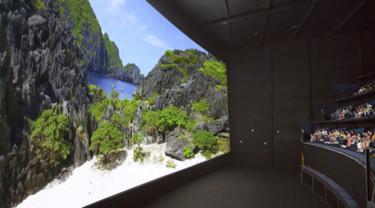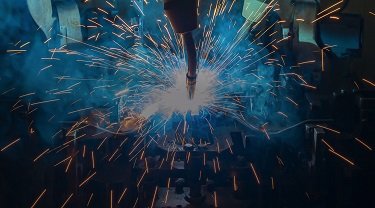Call it fate or destiny, but Toronto’s SimEx-Iwerks‘ first domestic simulation project 26 years ago, which operated at the base of the CN Tower, was entitled Tour of the Universe.
Today with more than 100 employees, two offices in Canada as well as the U.S., and 35 million people from every corner of the globe enjoying its state-of-the-art simulation attractions, the company’s success over the past two decades can be described as out of this world.
According to CEO Michael Needham, there’s no magic wand for international success.
“You have to be persistent and committed,” he says. “Responding to inquiries is easy, servicing a market is not. Opening a new market is an imprecise science; it means getting on a plane and looking around.”
Approximately 90 per cent of the company’s sales are destined for markets outside of Canada. The U.S. is the main export destination, but business in China has been growing steadily.
Understanding the market as well as being an innovator were crucial to the SimEx-Iwerks success.
“Once you are talking to a client in a foreign market, it’s a very local situation,” Needham says. “Understanding that local situation is very crucial as an exporter. If we go to China and are selling to a park, we need to know the other parks nearby and how we can help them fit in with those others. We’re selling our expertise.”
The company’s expertise and global value proposition in large-scale simulations is based on pilot training simulator technology.
“We were the first to build a simulation attraction using motion simulators. That was an extraordinarily innovative move,” Needham adds. “What sets us apart today is our reputation for dependability and excellence.”
Achieving excellence has been a journey in itself. The company’s first project was twice over budget and wasn’t going to provide a positive return on investment. On a whim, Needham looked to Japan to promote the company’s services through Needham’s contacts from his tenure as an investment banker. The effort paid off with SimEx-Iwerks signing a contract to provide an attraction in an amusement park in Kobe, Japan.
“In retrospect, we stumbled around like blind mice the first few years,” Needham says. “We were able to get that project in Japan fairly quickly, but the next few came as a result of wandering around, having meetings and wandering around some more. But we were committed and that’s key.”
Export insights with CEO Michael Needham
What advice would you give to a SME who is breaking into a new market?
Your product must be distinctive, with some innovation and hopefully protected.
It helps to have employees who are excited about exporting and who are curious and also understand cultural norms and don’t offend people.
It really helps for management and employees to have a supportive, independently-minded family. Export markets require physical servicing – you have to be in the market quite a bit and it’s important to remember that your competition is local.
You also absolutely need financial support as you have a significant amount of money invested before you get any return.
Overall, be persistent and committed.
What’s the biggest lesson learned in going global?
When you introduce a new project, you have two years until the competition has copied you. At best, you have four years.
They can undercut you and they are local. It’s not the same as Silicon Valley and the digital world, but the days that you can introduce a product and sit back for 10 years and relax are long gone.
If you could summarize your export journey in one word or sentence, what would it be?
Exciting. I’m past retirement age and my business partner, Shiori Sudo, is as well and we still get excited to go to a new site for a new project.
This is true for everyone here – our salespeople and engineers. They get genuinely excited about travelling to a new place, contributing to people’s entertainment and fun, from convincing people and making the sale to installation and seeing the public come through and enjoy it.
What makes you most cautious about exporting these days?
Exporting is change. We started in Japan, focused on that market for 10 years and it waned. In Korea, it was the same thing. China has been extremely good over the past 12 years, but there are changes happening there. We always have to be moving, which is why we’re looking at the Middle East. You have to be agile.





